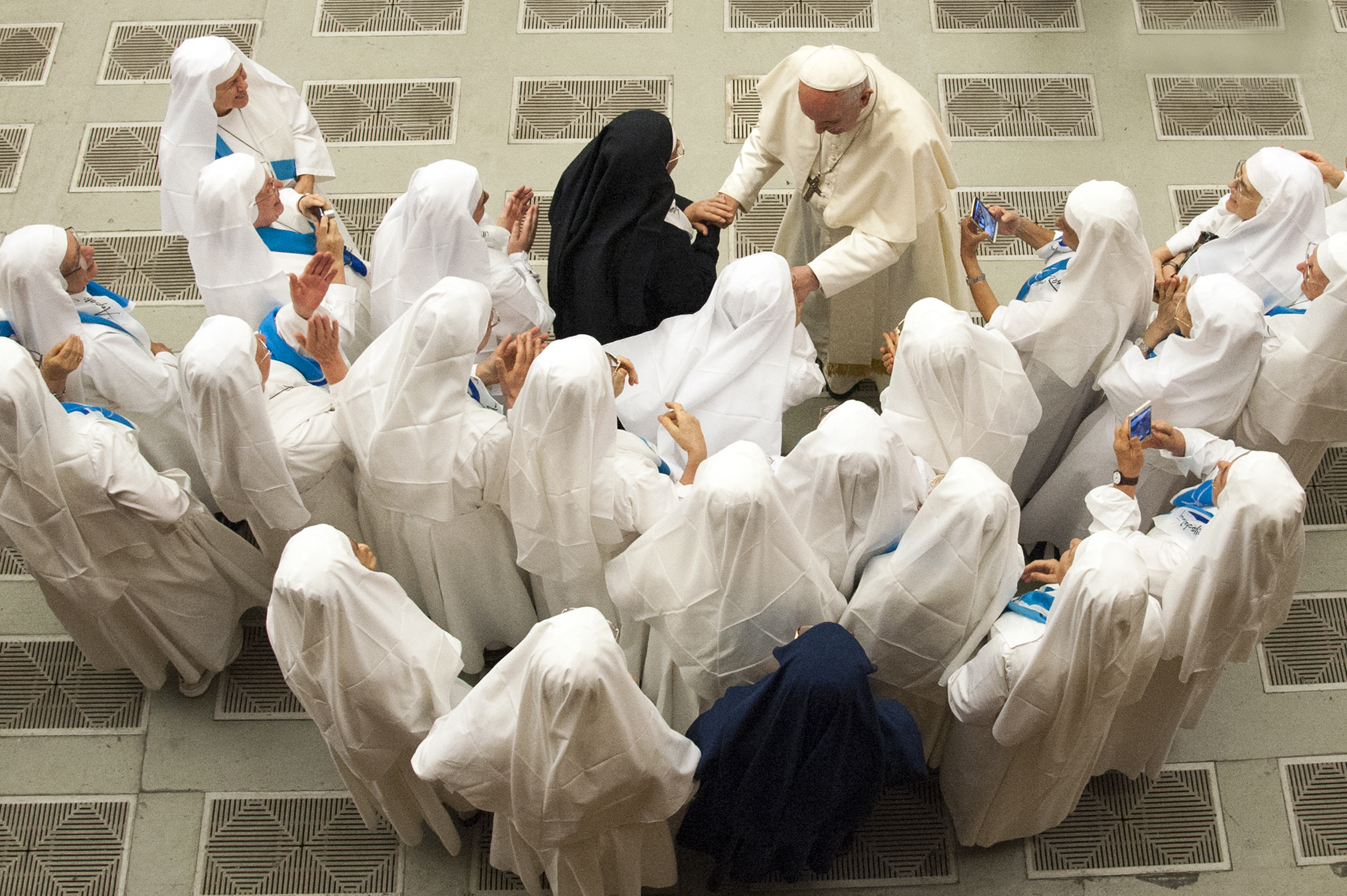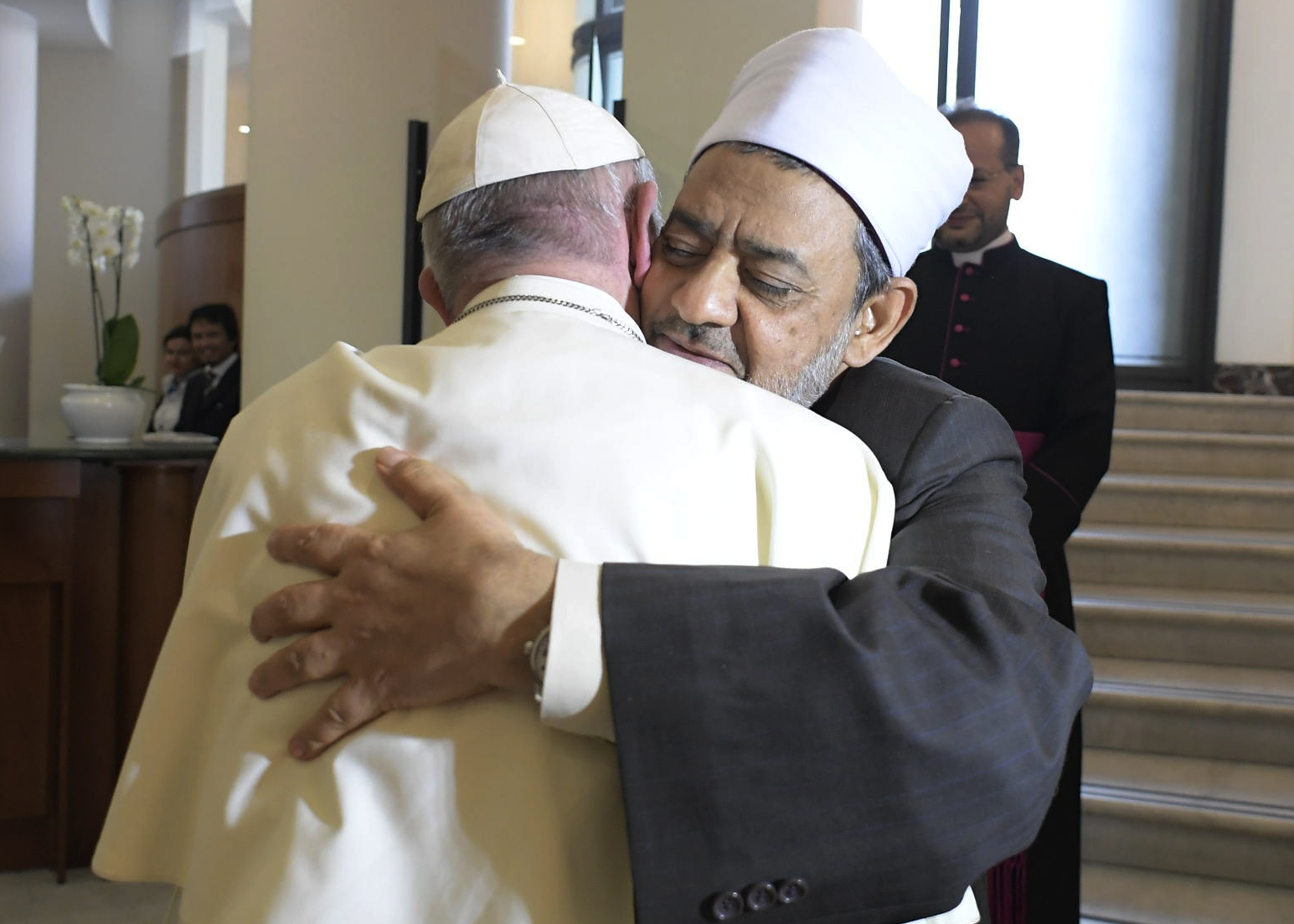Pope Francis’s visit to the United Arab Emirates will seek to highlight the importance of inter-faith co-operation while giving support to a local Catholic community comprised largely of migrants, according to a spokesman for the Holy See.
Alessandro Gisotti, the Director of the Holy See Press Office, told reporters today that the spur for Francis’ trip - the first by a Pope to the Arabian Peninsula - is an inter-religious gathering in Abu Dhabi on 4 February, which will be attended by 700 religious leaders including imams, rabbis and bishops.
The 82-year-old Jesuit Pope, who is making his seventh visit to a Muslim majority country, will be accompanied for much of his time in UAE by Sheikh Ahmed el-Tayeb, the Grand Imam of Egypt’s Al Azhar university and Mosque, the seat of Sunni learning.
Francis has invested time in building a relationship with the Grand Imam, a man he describes as “my brother and a dear friend” and whom he embraced and stood alongside during a 2017 trip to Egypt.
He and the Grand Imam will both give speeches at a gathering on “human fraternity” taking place at the Founder’s Memorial, in Abu Dhabi, and will be together during a private meeting between Francis and the Muslim Council of Elders at the Sheikh Zayed Grand Mosque. Dr el-Tayeb is president of the elders’ council, which was established in 2014 with the aim of promoting peace across the Islamic world.
The Holy See spokesman explained that during his Abu Dhabi trip, the Pope will give just two speeches - both in Italian. He will also be breaking with papal visit tradition by not giving a public address when he meets with Sheikh Mohammed bin Zayed Al Nahyan, the Crown Prince of Abu Dhabi, and other UAE leaders.
“The meeting is the message,” Mr Gisotti told reporters in the Vatican today, adding that Francis’ wants to emphasise the value of dialogue based on personal encounter.
The Pope is due to arrive in Abu Dhabi on Sunday 3 February at 10pm local time and after a low key welcome at the airport will travel to the Al Mushrif Palace, where he is staying. Largely used by diplomats and state officials this venue has been chosen as the papal ambassador to the UAE, Archbishop Francisco Padilla, resides in Kuwait.
After spending the first day on interfaith dialogue, the second day of the Pope’s visit will focus on the Catholic community in UAE, described by Mr Gisotti as a “Church of Migrants.” It is largely comprised of people from the Philippines and South India, and makes up around 10 per cent of the population.
On Tuesday morning, the Pope is set to celebrate the largest act of Christian worship ever to place on the Arabian peninsula when he says open-air Mass at the Zayed Sports City stadium where up to 135,000 are due to attend. The 5 February has also been declared a public holiday for all private sector workers attending the liturgy.
Before the Mass, Francis will visit St Joseph’s Cathedral, Abu Dhabi, home to the largest single congregation in any Muslim-majority country and situated within walking distance from the “Mary, Mother of Jesus” Mosque, recently renamed to demonstrate the importance of co-existence between the religions. He will visit the cathedral with Bishop Paul Hinder, leader of the Apostolic Vicariate of Southern Arabia.
The UAE, an oil-rich federation of emirates formally established as a country in 1971,rides itself on being one of the most religiously tolerant states in the Middle East, and has allowed churches to be built in the region since 1965. On 11 June 2015, Cardinal Pietro Parolin, Holy See Secretary of State, opened St. Paul's Church in Abu Dhabi, United Arab Emirates.
The UAE’s major ally is Saudi Arabia, a country that the Holy See has been quietly seeking to build links with, but which is far more restrictive when it comes to freedom of worship. Of even greater concern is the involvement of the Saudi-UAE coalition in the war in Yemen, which after nearly four years of fighting has left more than 14 million people facing starvation.
Mr Gisotti could not say whether the Pope would address Yemen while in UAE but pointed out that Francis had made appeals on behalf of the Yemeni people on two recent occasions: during an angelus address on the 17 June 2018 and in in his “Urbi et Orbi” message on Christmas day 2018.
In a video message released before his trip, the Pope praised the UAE as a "model of coexistence" adding that faith in God should unite people and distance them from “hostility and aversion.” Francis is likely to repeat this while in the country, and stress the importance of religion as a means of building peace.
“We think this Pope is working very hard to harmonise understanding between different religions,” the UAE’s Ambassador to the United Kingdom, Sulaiman Almazroui, told The Tablet. “He has a genuine desire to arrive at balanced thinking of acceptance of Islam minus extremism. And Christianity minus extremism.”
Francis’ UAE visit is the centre piece of a triptych that includes the visit to Cairo in 2017, and the forthcoming trip Morocco next month which in geo-political terms is an opportunity for the Vatican to open channels of dialogue with Muslim leaders while privately trying to exert greater influence in the region.
“In the alarming global trends towards nationalism, populism, and sectarianism, the UAE provides a strategic pushback against intolerance,” Canon Andy Thompson, the senior Anglican chaplain in Abu Dhabi, who has lived in the UAE for more than twenty years, told The Tablet.
He explained the 5 February Mass will be the “biggest act of Christian worship ever in the history of the region” adding that “Pope Francis is deeply admired and loved by many for his commitment to live an authentic Christian lifestyle despite the trappings of the power and the perceived wealth of his office.”
Mr Gisotti said that the theme of the Pope’s visit is “Make me a channel of your peace” which is taken from a prayer devised by the Pope’s namesake, St Francis of Assisi. This year marks the 800th anniversary of attempts by St Francis to build bridges with the Islamic world when he sought to broker a peace with the Sultan of Egypt during the crusades.
The Pope referenced this anniversary during his speech to diplomats on 7 January 2018 when he described his forthcoming trips to UAE and Morocco as “two important opportunities to advance inter-religious dialogue and mutual understanding between the followers of both religions.”
Among the Vatican officials travelling with the Pope on his 3-5 February trip to the UAE include Cardinal Leonardo Sandri, Prefect of the Congregation for the Oriental Churches, Cardinal Fernando Filoni, Prefect of the Congregation for the Evangelisation of Peoples, and Bishop Miguel Ayuso, the Secretary of the Pontifical Council for Inter-religious Dialogue.



 Loading ...
Loading ...